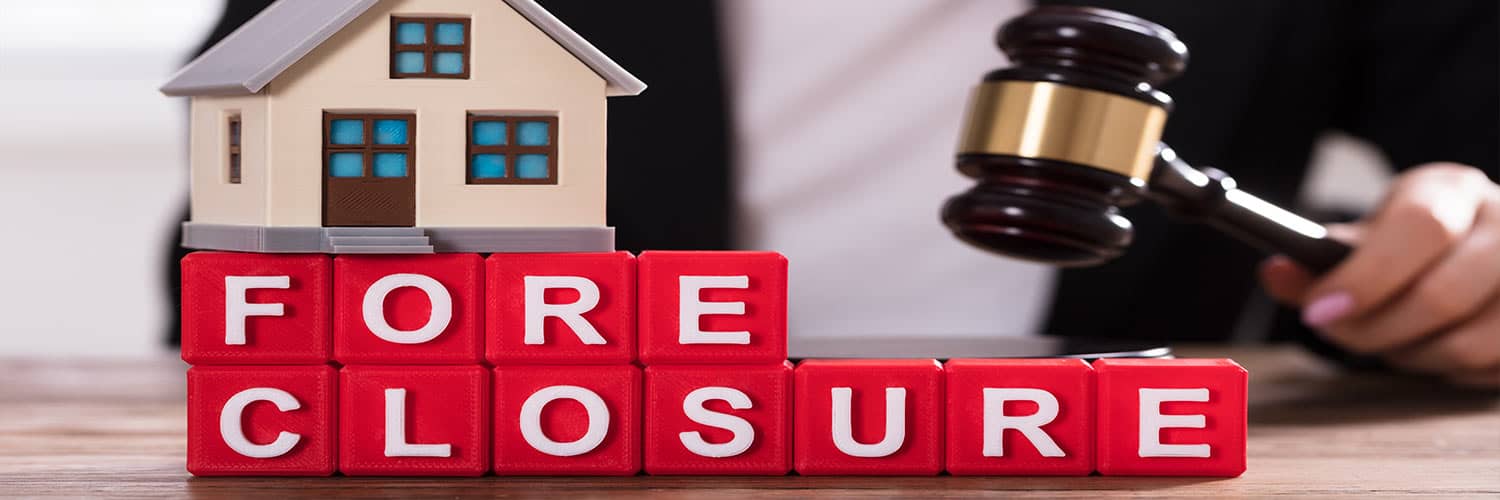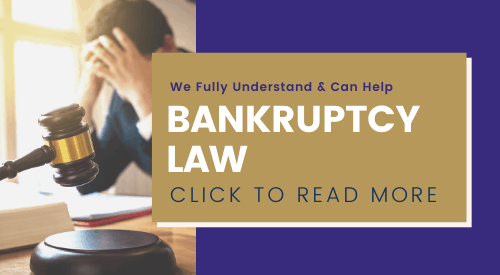Foreclosure law
Get Help Fighting Foreclosure and Keep Your Home
Foreclosure Law

Foreclosure is a legal process that typically starts with a lender taking control of a property. The next step is the eviction of the homeowner. The lender then sells the home if the homeowner cannot make principal and interest payments on the mortgage.
Get FREE Consultation today by calling us at 847-231-3999!
A Look at the Basics of Foreclosure
The foreclosure procedure has its basis in the mortgage contract. A mortgage provides the lender the right to use the property in the form of collateral. This occurs in the event the buyer does not uphold their obligation to pay back the loan.
A loan is delinquent as soon as a borrower does not make a mortgage payment on schedule. The process initiates when a borrower defaults or misses a loan or mortgage payment. At that point, the lender notifies the homeowner that they’re in default. The lender usually starts the process approximately three to six months after the homeowner misses the mortgage payment. However, this assumes the mortgage remains delinquent and the homeowner hasn’t made the missed payments within a grace period. It gets harder to make up the payments the further behind the borrower gets. This is partly because lenders add on fees for late payments.
Mortgage payments are usually due upon the first day of the month. As long as the payment processes by the 15th day of the month they’ve usually considered on time. If a payment processes after the 15th, then the borrower faces late fees.
Get Help Fighting Foreclosure and Keep Your Home
When an account enters the second month of nonpayment, it becomes delinquent. The lender must notify the borrower they have a thirty-day grace period in which to contact a housing counselor. Alternatively, the borrower may pursue seek loss mitigation. Before the lender may take legal action, they must grant another thirty-day grace period. After the borrower misses a third payment the lender sends notice that it plans file a foreclosure.
If a mortgage remains delinquent for 90 to 105 days, the lender stops accepting payments and declares a default. The loan then transfers to the lender’s foreclosure department and on to a foreclosure lawyer. The law firm might send the borrower a letter about the delinquency. It typically allows some time to repay the late payments along with extra fees. Additionally, the lender’s attorney serves notice of the right to reinstate the loan thirty days before filing the foreclosure.
In order to “cure” the default, a borrower must pay the whole amount he or she owes in s single payment. The law firm conducts a title search to clarify which parties are the defendants in a foreclosure lawsuit. The cost of that title search along with legal fees adds to the amount the borrower owes.
According to federal regulations, a foreclosure cannot proceed unless the borrower is over 120 days past due on their mortgage. Illinois is a judicial foreclosure state. This means that a lender must file and serve a lawsuit on the homeowner. In addition, they must serve the lawsuit to lien holders and any tenants on the property. A recorded lien holder can include a second mortgage, judgement lien or tax lien holder like the IRS.
When to Hire a Foreclosure Lawyer
If you believe you have a defense and want to keep your house call our law firm. You’ll need an experienced lawyer at your side to help you.
Some of the defenses that typically call for the assistance of a foreclosure lawyer include:
- The party pursuing foreclose cannot prove it actually owns the loan.
- The servicer did not comply with correct foreclosure processes or made an error with the account.
Every defense is unique different and has its own specifics at issue. Additionally, you’ll need to raise your legal defense in a court. You’ll also need to file a lawsuit if the foreclosure is non-judicial or reply to the lawsuit through judicial foreclosure.
In either case, the process involves initiating legal arguments, filing documents and more. A foreclosure lawyer helps you develop arguments, navigate court rules and submit paperwork. It’s not likely that a homeowner facing foreclosure could conduct a defense successfully without professional legal help.
This can be a challenging and emotional experience to face on your own. Talk with our law firm today to learn more about your options.






